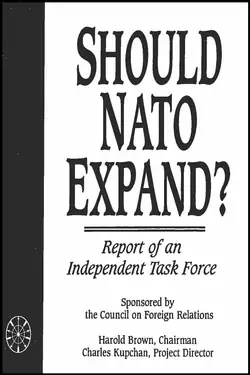
Should NATO Expand?

- Task Force Report
- Analysis and policy prescriptions of major foreign policy issues facing the United States, developed through private deliberations among a diverse and distinguished group of experts.
More on:
Americans and Europeans can fairly debate whether NATO should expand in the near term or proceed with formal expansion only if Russia again seems to pose a military threat to Central Europe. But whichever course is chosen NATO should move swiftly and with determination to put itself in a position to admit new members, and prospective entrants should take steps now to prepare themselves for full membership. In much the same way as NATO helped the democracies of Western Europe recover from the devastation of World War II, it now should provide the sense of reassurance and community needed to help the democracies of Central Europe recover from the Cold War. At the same time, the best way to deal with Russia is not to isolate or antagonize Moscow. Rather, it is to bind the emerging democracies of Central Europe to the West even as the West reaches out to forge a new cooperative relationship with Russia.
More on:
 Online Store
Online Store